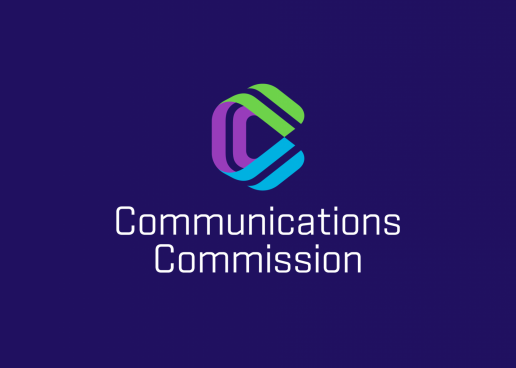Nasib Hasanov violated the legislation again by purchasing 51% of the shares in Caucasus Online, and currently unlawfully owns 100% of the company

The Communications Commission has thoroughly studied the opinion of the Venice Commission on the 17 July 2020 amendments to the Law of Georgia on Electronic Communications. The Commission reiterates its commitment to the values outlined in the opinion. The daily activities and decisions of the Commission are guided by these principles.
Foremost of all, it is important to note that the Venice Commission itself acknowledges the existence of difficult situation and challenges that led to the introduction of amendments to the law.
We welcome the fact that the Venice Commission acknowledges the objective of the legislative amendments – to provide the government with a more effective and less damaging tool than the suspension of authorisation / revocation of license and leaving millions of subscribers without access to the internet and other means of electronic communications. We value the effort undertaken by the Venice Commission, and it is important to us that the Venice Commission clearly acknowledges the sensitivity of the issue and the legislative gap that existed prior to the introduction of amendments.
In this context, it is important to note that prior to the introduction of amendments to the law, Caucasus Online ignored numerous decisions of the Communications Commission adopted since October 2019, and refused to rectify the legislative violations. Moreover, Nasib Hasanov violated the Georgian legislation on several occasions. Mr. Hasanov was aware of his obligations under the Georgian legislation prior to unlawfully purchasing 49% of the shares in the company. This is evidenced by the fact that in the process of acquiring Caucasus Online on 18 January 2019, he personally assumed the obligation and responsibility under the terms of the purchase agreement to comply with the legislative requirements by obtaining the Commission’s advance approval for the transaction, as well as settling other legal requirements.
In parallel to conducting numerous legal disputes in courts, Mr. Hasanov once again violated the legislation in August 2020 by purchasing the remaining 51% of the shares in Caucasus Online through an expedited process without the Commission’s prior approval. This was done after the entry into force of the amendments to the Law of Georgia on Electronic Communications, and before the appointment of a special manager to the company by the Commission. Currently, Nasib Hasanov unlawfully owns 100% of Caucasus Online.
As to other important circumstances, on 15 December 2020, the director of Caucasus Online submitted two documents to the special manager for approval. One of the documents in question concerned the signing of an agreement between Caucasus Online and the Kazakh firm JSC TransTeleCom, while the other document concerned the signing of an agreement between Caucasus Online and the Turkish company JSC SOCAR Turkey Fiber Optik A.Ş. Both documents presented Caucasus Online as part of the Azerbaijani NEQSOL Holding. The same documents acknowledged the status of Caucasus Online as a mechanism for the implementation of the regional digital hub project.
Based on the aforementioned documents, one of the prerequisites for the signing of the memorandum between Caucasus Online and JSC SOCAR Turkey Fiber Optik A.Ş was the conclusion of an agreement between the governments of Kazakhstan and Azerbaijan regarding the construction of a fibre-optic cable system under the Caspian Sea. The special manager appointed by the Communications Commission refused to sign these two documents.
It should be noted as well that the opinion of the Venice Commission does not apply to the full package ofamendments to the Law of Georgia on Electronic Communications introduced on 17 July 2020. The opinion only concerns the power to appoint a special manager in order to enforce the decisions made by the Commission due to the violation of the requirements related to mergers and acquisitions and the immediate enforcement of this decision. The Venice Commission did not assess the issue of immediate enforcement of other decisions of the Communications Commission, or the issue of appointing a special manager in case of failure by persons having significant market power to comply with specific obligations.
The Communications Commission is of the opinion that its decisions must be subject to a single European standard. Specifically, any revisions or suspension of the Commission’s decisions should be implemented by the court, rather than automatically on the basis of an authorised person’s appeal. The decisions of the Commission (the regulatory authority) and the unhindered enforcement of these decisions are of particular importance for the proper development of the regulated field. The power of the court to suspend the execution of the Commission’s decisions is guaranteed by the EU-Georgia Association Agreement. This approach has not been questioned by the Venice Commission, whose opinion states that suspension of the execution of the Commission’s decisions by the court is appropriate in all cases except the appointment of the special manager.
Another significant issue concerns the freedom of expression. It is important to note that freedom of speech and expression is not regulated by the Law of Georgia on Electronic Communications. The Venice Commission itself states that the purpose of the amendments to the law was not to limit freedom of expression. Nevertheless, we believe that it is necessary to clarify that in Georgia the freedom of expression is guaranteed by the Constitution of Georgia, the Law of Georgia on Freedom of Speech and Expression, and the Law of Georgia on Broadcasting.












